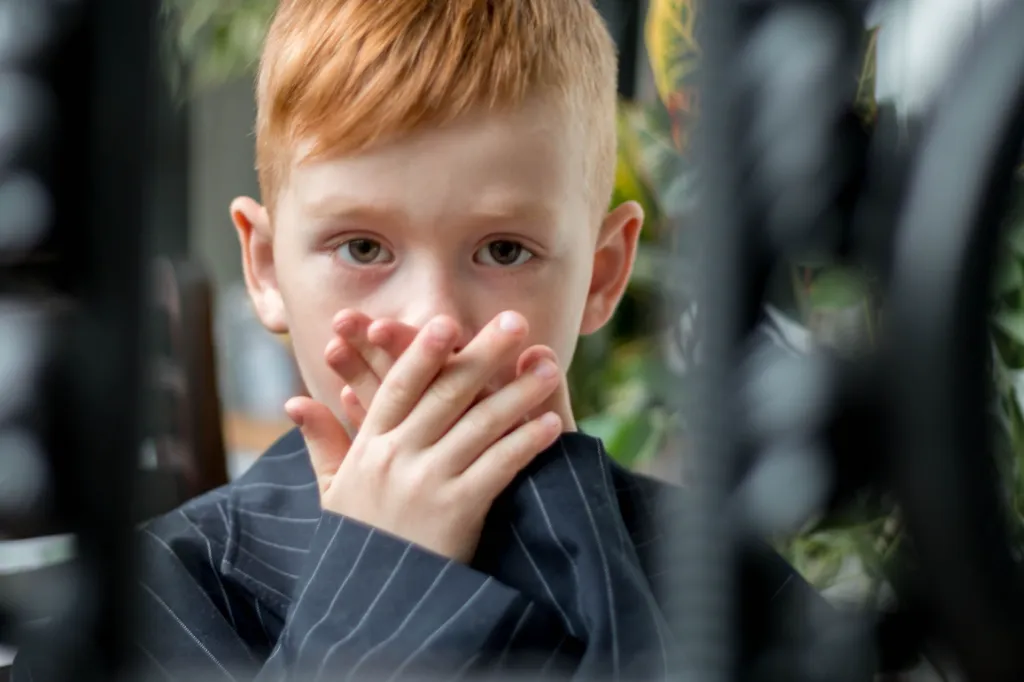Importance of Debunking Myths About Selective Mutism
Debunking selective mutism myths is crucial in raising awareness and understanding of this often misunderstood communication condition. Selective mutism isn’t a choice or a form of disobedience but rather an anxiety disorder that affects a person’s ability to speak in certain situations. It’s important to debunk myths about selective mutism to ensure that individuals with this condition receive the support they need.
One common myth about selective mutism is that selectively mute children are simply shy or stubborn. However, selective mutism isn’t the result of shyness or stubbornness. It’s a complex anxiety disorder that can significantly impact a child’s social and communication skills. By debunking this myth, we can help others understand that selective mutism is a legitimate disorder that requires understanding and support.

Another myth about selective mutism is that many children will eventually grow out of it. Without appropriate intervention and support, selective mutism can persist into adulthood and have long-term effects on a person’s social and emotional well-being. It’s crucial to debunk this myth and highlight the importance of early intervention in helping individuals with selective mutism develop their communication skills and manage their anxiety.
Common Myths and Misconceptions About Selective Mutism
Many individuals hold common myths and misconceptions about selective mutism. One prevalent myth is that selective mutism is just shyness and that children will naturally outgrow it. Another misconception is that selective mutism is caused by bad parenting or trauma. Some people also mistakenly believe that selective mutism is a form of autism spectrum disorder or that it solely affects children.
It’s important to address these myths and provide accurate information about selective mutism to promote understanding and support for those affected by this condition. We can do that by identifying the signs and symptoms of selective mutism and focusing on children’s strengths and abilities.
Selective Mutism is Just Shyness
This is one of the common myths surrounding selective mutism. While shyness is a common trait in many people, selective mutism is characterised by the inability to speak in specific situations, despite being able to speak in other settings. It isn’t just a matter of being shy or introverted.
Selective mutism is actually classified as a social anxiety disorder and is considered one of the anxiety disorders. It’s also important to note that selective mutism isn’t a language disorder as one of the myths about selective mutism. Most children with selective mutism have the ability to understand and use language appropriately, but they’re unable to speak in certain social contexts due to extreme anxiety.
It is crucial to understand that selective mutism isn’t just shyness. It’s a complex anxiety disorder that requires proper understanding, support, and intervention to help children eventually overcome SM and their challenges and communicate effectively.
Children with Selective Mutism will Outgrow it Naturally
Contrary to common misconceptions, it isn’t true that children with selective mutism will naturally outgrow this complex anxiety disorder. Selective mutism isn’t a phase that children simply grow out of but rather a persistent condition that requires intervention and support. Although some children may show improvement over time, many continue to struggle with selective mutism well into their teenage years and adulthood.
Early intervention and appropriate treatment, such as cognitive-behavioural therapy, can greatly improve outcomes for children with selective mutism. It’s crucial to address this disorder proactively and provide the necessary support to help children overcome their challenges and reach their full potential.
Selective Mutism is a Form of Autism
Some people believe that selective mutism is a form of Autism. Selective mutism is a complex disorder that isn’t caused by any specific parenting style or traumatic event.
The exact cause of selective mutism is still unknown, but it’s believed to be a combination of genetic, environmental, and neurological factors. Research suggests that there may be a genetic predisposition to selective mutism, as well as differences in brain activity and neurotransmitter levels. It is also considered to be a form of autism, but although it has some correlation with it, it is not merely a form of ASD.
It’s important to dispel this myth and misconception to ensure that children with selective mutism receive appropriate support and understanding.
Selective Mutism is Solely a Childhood Disorder
Selective mutism isn’t solely a childhood disorder and can persist into adolescence and adulthood. Contrary to common misconceptions, individuals with selective mutism may continue to experience challenges with communitacting well beyond their early years. While it’s true that selective mutism often emerges during childhood, it’s important to recognise that it can endure into later stages of life if left untreated.
Adolescents and adults with selective mutism face unique challenges as they navigate social and professional environments. Their inability to speak in certain situations can severely impact their academic performance, career opportunities, and personal relationships.
It’s crucial to provide appropriate support and interventions to help individuals with selective mutism overcome their communication barriers and achieve their full potential.
Selective Mutism is Caused by Bad Parenting or Trauma
Some people mistakenly believe that bad parenting or trauma is the cause of selective mutism, but this is a common myth and misconception. It is essential to debunk it as, in some cases, it may prevent parents from seeking help. Selective mutism is a complex disorder that isn’t caused by any specific parenting style or traumatic event. While parenting and trauma can have an impact on a child’s overall development, they aren’t the direct causes of selective mutism.

The exact cause of selective mutism is still unknown, but it’s believed to be a combination of genetic, environmental, and neurological factors. Research suggests that there may be a genetic predisposition to selective mutism, as well as differences in brain activity and neurotransmitter levels.
It’s important to dispel this myth and misconception to ensure that children with selective mutism receive appropriate support and understanding.
Unique Community Services is Advocating for Empathy and Support for Individuals with Selective Mutism
At Unique Community Services, we understand and embrace the challenges and differences of people with selective mutism. We focus on providing a person-centred and humanised approach to supporting adults and children in overcoming SM. The team of highly trained clinicians can support people with SM to overcome their challenges.
Our team aims to maximise independence and social integration for every individual with SM by creating tailored strategies and positive reinforcement. The CQC-regulated services offered through our offices in Bristol, Manchester and Leeds can help you find individually tailored care and support. Contact us today to see how we can support you.














